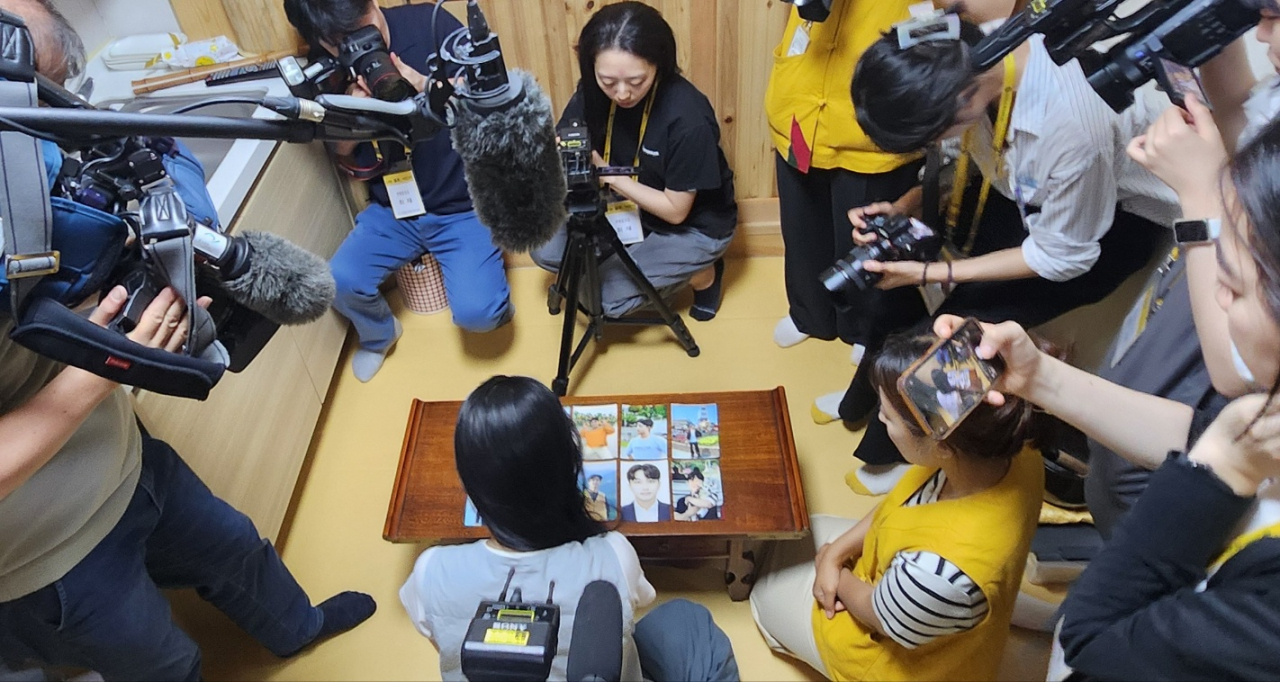 |
A participant selects her dinner date from photos during a matchmaking templestay at Naksansa in Yangyang County, Gangwon Province, Aug. 9. (Choi Si-young/The Korea Herald) |
YANGYANG, Gangwon Province -- Camera crews quickly swarmed a woman, zooming in on her pick for a dinner date from 10 men in photos at a temple run by the Jogye Order of Korean Buddhism, the country’s largest sect that since last year has been pushing hard with an unlikely project -- matchmaking.
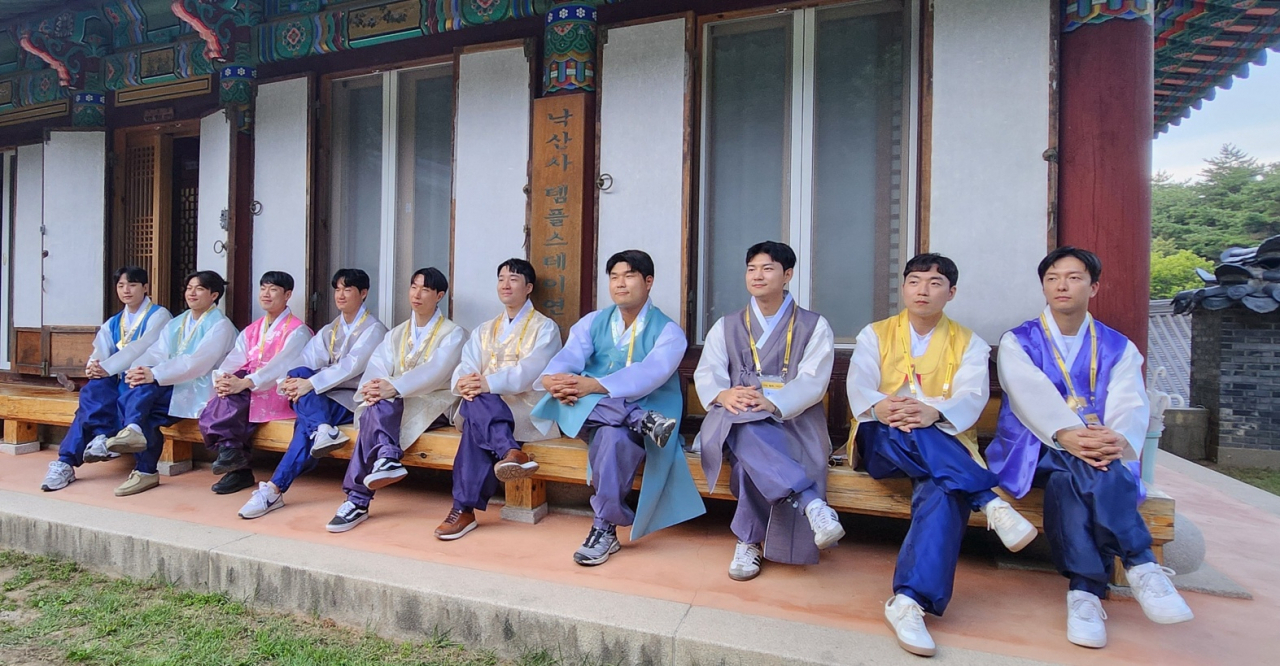 |
Participants in hanbok wait for their dates during a matchmaking templestay at Naksansa in Yangyang County, Gangwon Province, Aug. 9. (Choi Si-young/The Korea Herald) |
“I haven’t really had time to chat with this guy and we have only one dinner,” said the woman, identified as Woman 10, referring to her choice as she hurriedly left the room crowded with news crews, zeroing in on how the 20 participants -- 10 men and 10 women -- would match up after the Friday evening selection.
The two-day templestay program, which ended Saturday with six couples matched up, was packed with activities such as dating games, teatime and strolls around the temple known for its scenic seaside landscape.
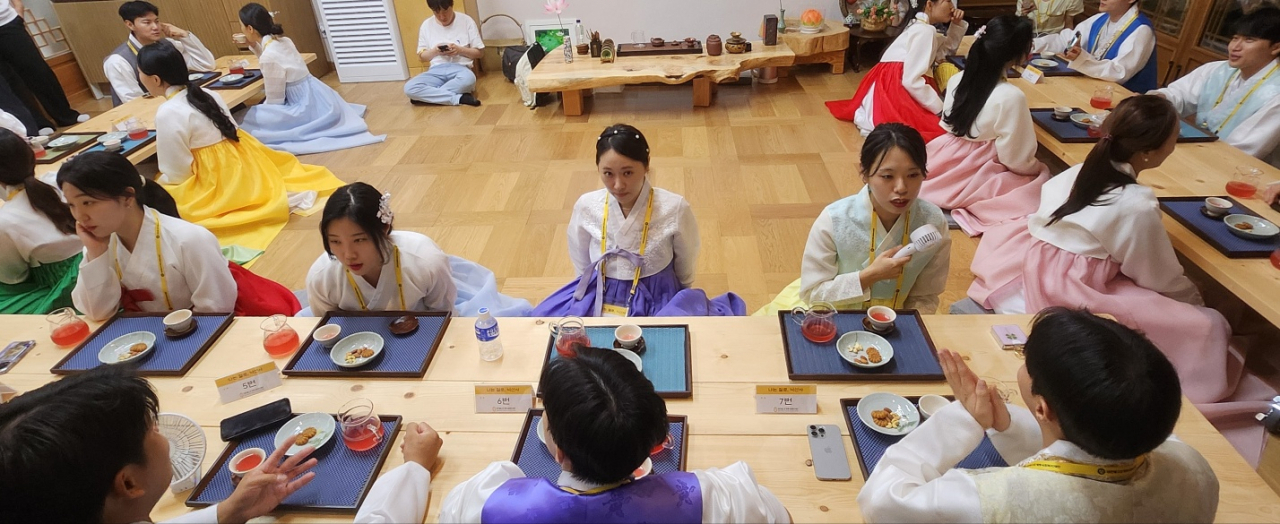 |
Participants chat during a matchmaking templestay at Naksansa in Yangyang County, Gangwon Province, Aug. 9. (Choi Si-young/The Korea Herald) |
“I think it’s the general temple vibe so to speak, the kind of peaceful and serene ambiance that makes us all more open to the idea of an open date,” said Kim Young-woo, known as Man 10, expressing a sentiment shared by many participants.
Kim, 31, who was not matched up by the end of the stay, was one of the few participants who openly revealed their identity. The 20 singles called each other by numbers assigned to them in advance by the Jogye staff.
“Our selection process in deciding who gets to be here is pretty simple,” said the Ven. Myojang, president of the Korean Buddhist Foundation for Social Welfare, the Jogye arm handling the program since 2012.
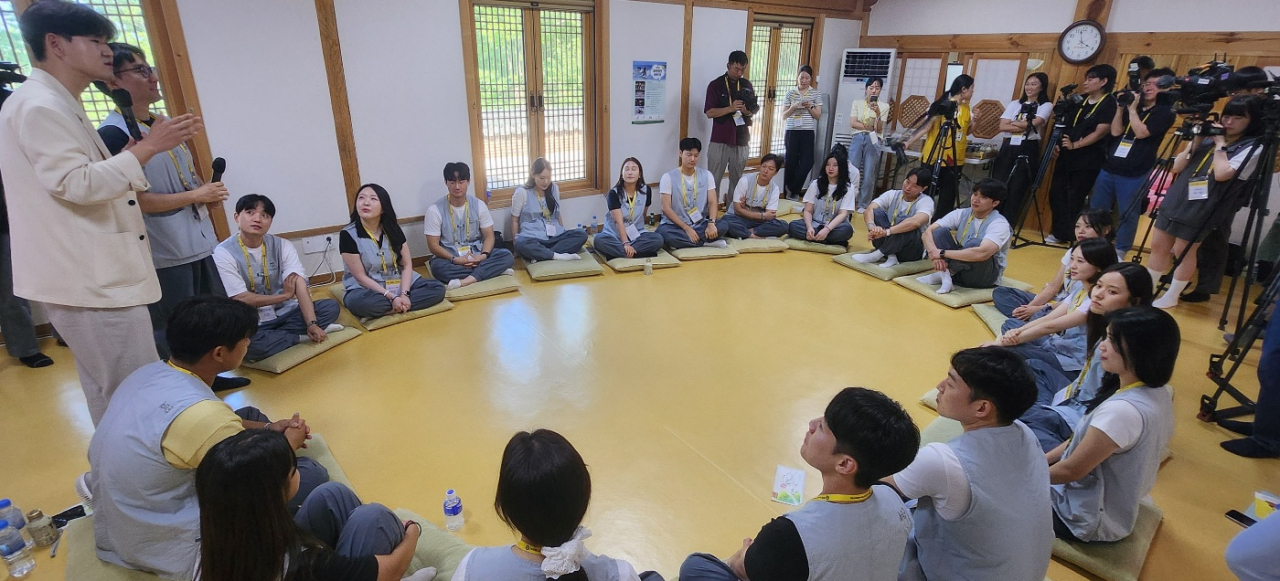 |
Participants play dating games during a matchmaking templestay at Naksansa in Yangyang County, Gangwon Province, Aug. 9. (Choi Si-young/The Korea Herald) |
“We were looking for Buddhists and non-Buddhists alike who are really serious about finding a partner for life,” Myojang added, alluding to foundation efforts to support a government campaign to counter the world’s lowest birthrate.
Myojang, who took over the foundation in August last year, relaunched the program in November after a makeover that resulted in having the singles interact more intimately -- bold changes that the foundation officials attribute to Myojang’s openness to suggestions aimed at reviving a matchmaking program that had barely registered with the public.
A catchy program tagline reminiscent of the hit Netflix reality show “I am Solo” -- a journey of singles fighting for their dates at all costs -- was a definite plus. Over 1,500 singles had sought to participate in the fifth meetup, a record number of applications since Myojang’s November overhaul.
The participants were determined to go home with a date.
 |
A couple that has matched up at a matchmaking templestay poses for a photo at Naksansa in Yangyang County, Gangwon Province, Aug. 10. (Choi Si-young/The Korea Herald) |
Woman 4 drew on family history, describing herself as committed to finding someone ready to get married, just like her parents found each other at a temple. “There is this peer pressure and I get that given where we are,” said the 30-year-old who works in advertising, withholding her name.
“I have my pick in mind but don’t know if we’re on the same page,” she said while on a temple tour Friday led by monks after dinner. The next morning, she became one of the six couples that found their match.
“What I can say now that it’s all over,” she said, “We should do two nights instead of one.”
The Naksansa matchup, sponsored by the Ministry of Health and Welfare, wasn’t all about chitchatting. The singles sat for a lecture by an outside expert exploring perceptions around why Korea is facing the worst birthrate ever and what can be done to address the challenge.
Joo Hyung-hwan, vice president of the Presidential Committee on Aging Society and Population Policy, came by in a clear sign that the government is backing the Jogye initiative and is ready to do more.
“I cannot but express the hope I’ve seen just now and the sense of responsibility that I should really do the job this post requires,” Joo said. “We will do everything to clear hurdles that stand in the way of finding a good match.”
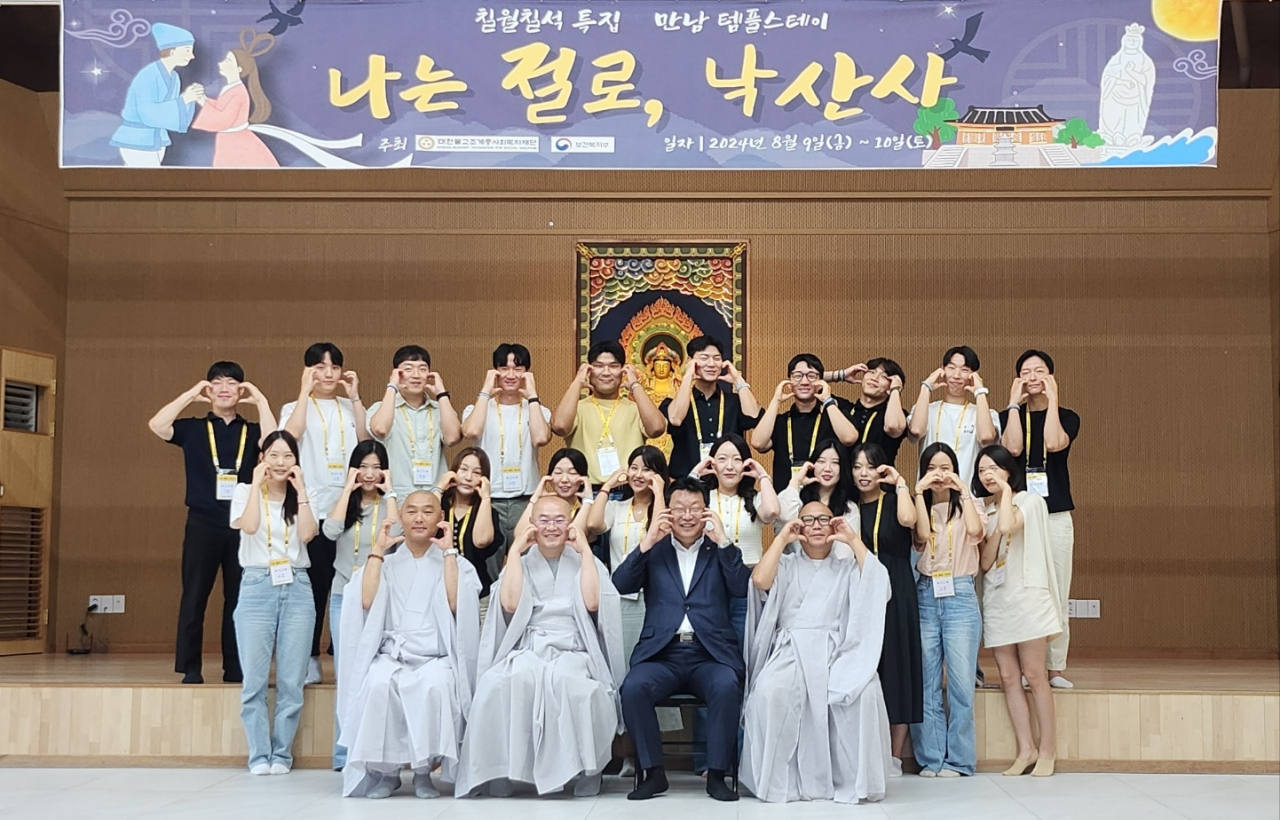 |
Participants in a matchmaking templestay at Naksansa in Yangyang County, Gangwon Province, pose for a photo on Aug. 9. (Choi Si-young/The Korea Herald) |







![[Today’s K-pop] Blackpink’s Jennie, Lisa invited to Coachella as solo acts](http://res.heraldm.com/phpwas/restmb_idxmake.php?idx=644&simg=/content/image/2024/11/21/20241121050099_0.jpg)